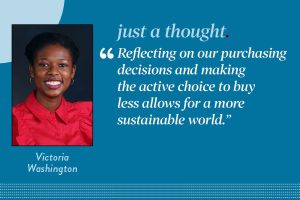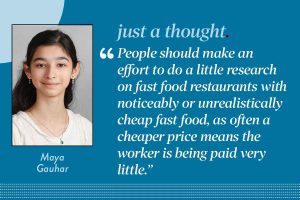The price is (not) right: Fast fashion ethical concerns outweigh low prices
FAST FASHION FLAWS. While the low prices may attract students to fast fashion companies, Shein, among other brands, has come under fire for the mistreatment of workers and detrimental effects on the environment, making many students more hesitant to purchase the trendy designs they offer.
March 3, 2023
Founded in 2008 by Chris Xu, Shein’s trendy designs, low prices fueled its fast-growing popularity, prompting interest in the company’s labor laws and production process. The company adds around 2,000 new items to their site daily, attracting many shoppers.
Despite numerous controversies surrounding the company, it still has over 43.7 million active shoppers, the majority of whom are located in the United States. The desire for cheap clothing causes many buyers to turn a blind eye to unethical practices.
“When I first started purchasing items from Shein, I didn’t know much about them,” sophomore Taylor Landry said. “Then I found out and I was like, ‘Oh god, that’s not good.’ But I still kept buying them because it was an affordable option. Now I’ve stopped and am trying to cycle the clothes out of my wardrobe.”
According to CNBC, Shein’s success puts other fast fashion companies — like Zara and H&M — to shame. Upon a valuation in April 2022, its reported worth was $100 billion, but the shocking labor conditions of Shein’s factories have driven many away. They are known to the public as a secretive company, yet video of the working conditions have been snuck out of their facilities revealing that they underpay their workers, give them very few short breaks and have them working long hours.
“I won’t judge you for buying from Shein, but it’s against my current morals,” Taylor said. “Fast fashion is really hard to stop, especially one that big. In fact, I think Shein’s the biggest fashion retailer right now, and that’s bad.”
Shein draws in so many customers with its cheap prices and an influx of sponsorships. For social media users, it’s practically impossible to not have come across a Shein ad, as they are tailored to reach a large demographic of consumers. For some, the deal is too good to turn down.
“Who’s going to pay $30 for a T-shirt? You could buy a $5 one at Shein instead. They have everything on there, and they’re all at an affordable price,” sophomore Amira Williams said. “It’s a wide variety of stuff for cheap, and it’s average quality.”
Aside from toxic chemical production, the process of manufacturing the items produces over 700 million tons of C02 annually. Overpriced clothing drives many shoppers to buy cheaper alternatives from fast fashion brands, ignoring the detrimental effects they have on the environment and the people producing them.
“I think it’s dumb that people are saying, ‘You shouldn’t shop there,’ because where are they supposed to shop?” Amira said. “Some people don’t have enough money to buy good clothing, and Shein is cheap.”
The controversy surrounding morals and affordable options encourages a variety of debates on ethics as more and more people weigh the benefits and risks of purchasing fast fashion.





























































